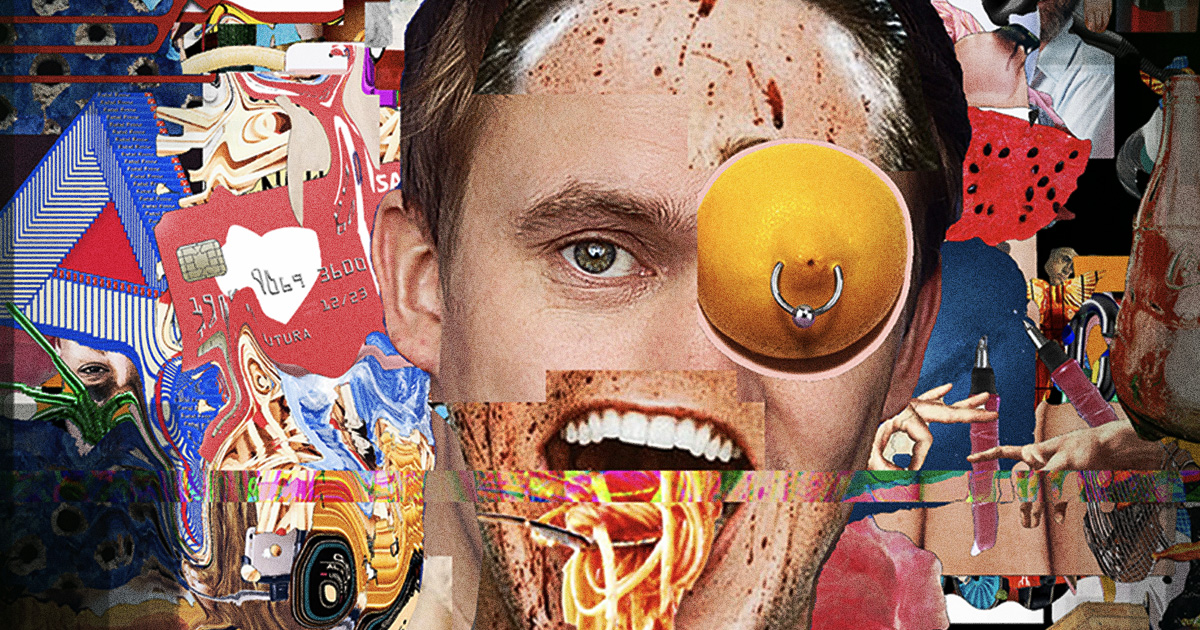A ‘game’ can be neatly defined as ‘that set of prescribed actions which comes into being as a result of following a particular set of arbitrary rules’. The activity that takes place in a game is unfree therefore – it’s unfree because it can’t happen just ‘any old way,’ but at the same time it remains true that we have freely agreed to play it. As James Carse says, ‘Whoever plays, place freely.’ We can’t play unless we have first tacitly agreed to.
There’s more to this notion of ‘playing games’ than we might have imagined therefore – we might think that it’s straightforward to know whether something is a game or not a game as we take it to be the case that there are situations where the rules covering what is allowed to happen are fixed (or ‘written in stone’) rather than purely arbitrary, but this simply isn’t the case. All rules are arbitrary – there’s no such thing as a ‘non-arbitrary rule’ and there never could be. This just happens to be something that we very seriously don’t want to face up to, however. We simply don’t want to see it.
A good way to look at this is in terms of ‘random’ versus ‘non-random’ numbers – historically, we have always considered random numbers to be the ‘poor cousins’ of non-random ones. We might have to acknowledge that they exist (in what we understand to be an untidy or even disreputable kind of a way) but we certainly don’t see them as being useful or valuable. Or if we could also say, we don’t see them as ‘having a proper place within the Great Scheme of Things’. We don’t really know why they’re there, or what the ‘point’ of them is.
Random numbers exist, we say, as a kind of ‘subset’ of non-random numbers, but they don’t actually have any use. Why God bothered to invent them in the first place remains something of a mystery too us! This, however, is just our distorted or prejudicial way of looking at things however the truth is the other way around – non-random numbers are a subset of random numbers, just as ‘order’ is a subset of ‘chaos’, just as a ‘finite game’ is never any more than a subset (i.e., a special case) of the ‘Infinite Game’. We are consistently engaged in ‘glorifying the non-random’, but this glory is only in our own heads. We’re spin-doctoring things to suit our biased viewpoint (as always).
Even to say that random numbers are a subset of non-random ones is seriously understating the matter – ultimately, all numbers are random, whether we like to admit it or not. An NR number is NR because we have specified it, because we have intended it, because we have ‘set out how it is to be produced’. What makes these number ‘special’ is the fact that we have developed ‘machinery’ to manufacture them, therefore and so anything that hasn’t been produced by our authorized machinery falls into the category of the ‘merely random’ (or ‘accidental’). We value NR numbers in the way that we do because they’re part of ‘our special scheme of things’; they fit into a system that is made up of similar or related numbers – they have a designated place in the system that we have devised, they are accredited members of a club that we esteem.
This is nothing but a mathematical gimmick therefore – what we’re essentially doing here is that we’re randomly selecting the parameters of this special set. We’re arbitrary choosing what the inclusion criteria should be and then – having done this – we’re acting as if these criteria were ‘God-given’, we are acting as if the instructions were engraved ‘Moses-style’ on a stone tablet that no one is ever allowed to question (unless they want to fall into eternal damnation, that is). The opus proprium is redefined as the opus alienum, as Berger and Luckmann so succinctly put it in The Social Construction of Reality.
Because the fixed rules or criteria that define the special club of NR numbers were in reality plucked out of thin air, with no basis at all, the ‘special numbers’ in the club – which we are making so much fuss over – aren’t really ‘special numbers’ at all. We randomly chose for them to be special which means that the idea of special is actually quite meaningless, as we could clearly see if we bothered to look for stop there’s no such thing as special I’m a never could be, and similarly there’s no such thing as non-random stuff only gets to be non random which is to say, having some special sort of significance or utility when we’re talking about games and how we might go about defining what is meant by playing again then another approach will be to say that a game is where we have arranged for some things to be special in contrast or the non special things without letting onto ourselves that this is a manoeuvre on our part, and then orientate ourselves towards this contrived situation as if it weren’t contrived, as if it were perfectly natural.
When we say that there exists this set of integers called ‘non-random numbers’ – which (we insist) are in some essential way different to all other possible numbers then this is ‘a mathematical game’. It’s a conceit, it’s a kind of ‘whimsical folly’ that we can very easily get trapped in. If we ‘take it seriously’ then we get trapped by it and the only way we could spring ourselves from this trap would be if we could remember that we made up the rules of the games ourselves, for no good reason at all…
To be able to grasp this notion of what is meant by ‘a game’ is of crucial importance therefore – it’s of crucial importance because it applies to all aspects of life, because it applies to lots of things that we never imagined it would. Thought is one such thing – thought is a game since the presumption behind the thinking mind is that there is only one ‘right way’ to look at the world; a way which will – if we stick with it – unfailingly provide for us ‘a true picture of reality’. This is a presumption that we all take for granted, no one ever stops to reflect that there might be any number of totally different ways of interpreting reality, each of which would be every bit as valid as the one we’re habituated to. Instead, we stick to whatever biased viewpoint we happened to have started off with like glue and devote all our time to trying our best to prove to ourselves that no other viewpoint could be true.
Promoting our narrow viewpoint becomes a way of life to us, it becomes ‘the only way of life we are capable of understanding’ and because of this we ‘unconditionally dedicate ourselves to the cause’. We commit to ‘fighting the good fight’ (we commit to ‘resisting Satan and all his works’) and we get to feel good (or bad) about ourselves on this on the strength of how well we’re doing in this struggle. Great benefits – the ultimate benefit, in fact – will come our way if only we can ‘stay true to the cause’ and keep on ‘plugging the agenda that we’re supposed to be plugging’. We are given to understand that our inflexibility will be richly rewarded, in other words. We will go to heaven for sure…
Inflexibility (which is to say close-mindedness) is never rewarded by nature, however, even if it is by our human systems. Or, if we want to say that it is rewarded – which in a way it is – then we can say that it is rewarded with ongoing misery, dissatisfaction and frustration. That’s our prize. We absolutely have to get our own way – there’s no negotiation on this – and yet at the same time we’re never going to. Failure is not an option, as we are so fond of saying, and yet failure is all that we are looking at here! Failure is the only option, if only we could see it. Ignominious failure is all that there is on the table for the permanently deluded ‘conditioned self’…
Promoting our narrow viewpoint is all we’re interested in, all we value, all we ever do, and yet not only is there no ‘benefit’ in this, there’s also no point to it – it’s a ‘futile obsession; and it will bring us nothing but pain. It’s not as if there’s anything special about the viewpoint we’re promoting (it’s not as if our VP is actually ‘true’) but because we have latched onto it in the first place we refuse to be dissuaded from our promotional efforts. This is tautological logic – I want it because I want it, I must have it because I’ve decided that I must have it. We trap ourselves with this logic, which is – we might say – the same thing as ‘the logic of personal will’; we’re incapable of ‘seeing the trap’ because we’re incapable of questioning ourselves! We’re not in the business of questioning our assumed VP, after all – the whole point is that we’re not interested in questioning our VP.
To see that all numbers are random numbers, and that it is only our conceit to say that that there is such a thing as ‘a non-random number’ takes beyond the domain of mathematics – the ramifications here are profound and wide-reaching, to say the least. What this means is that our way of understanding the world (which of course we base everything on) is also nothing more than a ‘conceit’. It’s not just the case that our modality of operating in the world is based on a fiction, based on a ‘whimsical idea that we refuse to question’, but also that who we fundamentally consider ourselves to be is ‘a fiction’, a mere ‘whimsical notion’ that we have rendered ourselves incapable of investigating. We can say that the narrow and arbitrary viewpoint which we are locked into promoting is the thinking mind, and we could also – and equivalently – simply say that it is the conditioned identity or ‘self’.
Image – 123.rf.com






